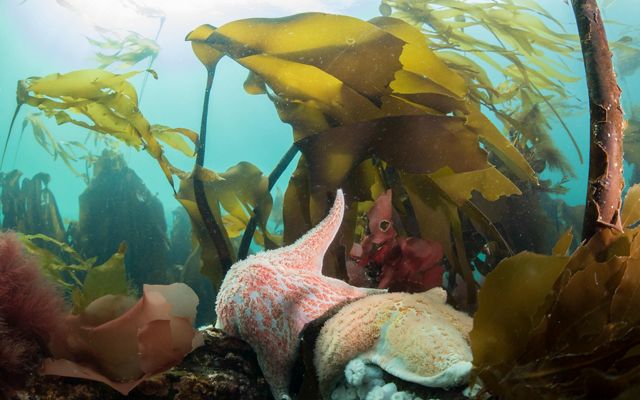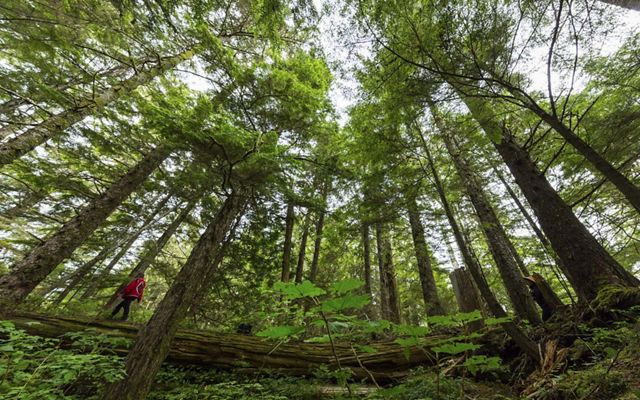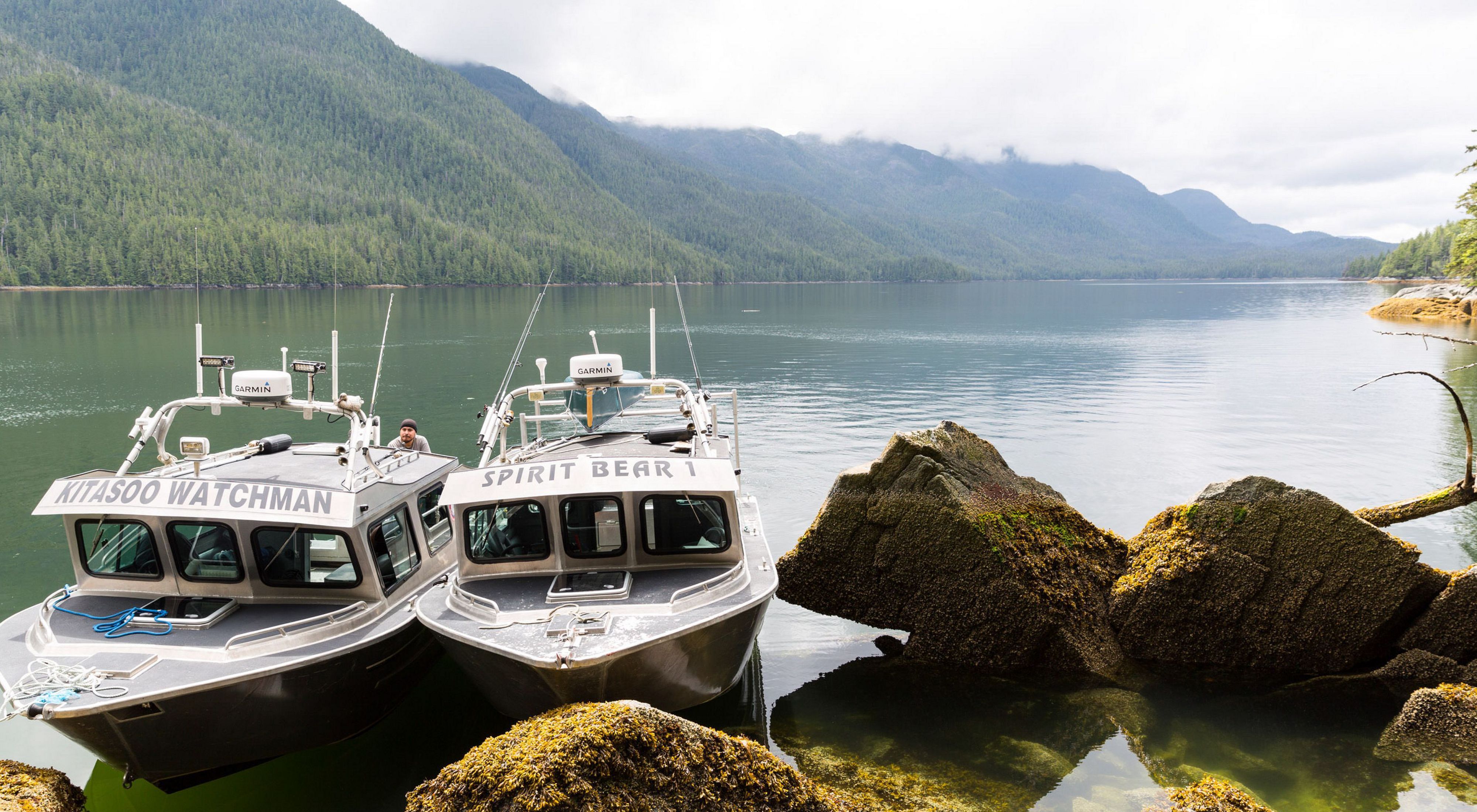Media Contacts
-
Jacqueline Nunes
Director of Communications
Nature United
Phone: 416-526-7353
Email: jacqueline.nunes@natureunited.ca
UN Biodiversity Conference – COP 15 – Tiohtià:ke/Montreal, QC – The Government of Canada announced on Wednesday a commitment to join Indigenous Nations in developing a conservation finance model to advance large-scale conservation, including an investment of $800 million. Nature United commends this critical step forward in recognizing Indigenous rights and authority; providing large-scale financing for Indigenous-led conservation; and joining environmental organizations, philanthropic funders and other investors in advancing a global model for transformative conservation—all integral to achieving Canada’s 2030 climate and biodiversity goals.

Led by 17 First Nations, the Great Bear Sea initiative will build on the success of the first Project Finance for Permanence (PFP) model developed in 2007 to conserve the Great Bear Rainforest—a globally significant landscape of old-growth trees and freshwater systems. The First Nations-led vision for the Great Bear Sea initiative will expand the scope of conservation to vital marine ecosystems that have been stewarded by First Nations for millennia.
The other three Indigenous-led PFPs that will receive federal support are the Omushkego Conservation Project in northern Ontario; the Qikiqtani Region of Nunavut; and the Northwest Territories.
Quote: Dallas Smith
Building new, Indigenous-led approaches takes time and partnerships based on trust. We have long-standing funders and partners, including Nature United and its global affiliate, that understand this and have supported our vision.
Nature United and our global affiliate, The Nature Conservancy (nature.org), have supported the Great Bear Rainforest PFP for over a decade, including raising an initial $39 million to help establish Coast Funds. This innovative partnership among First Nations, the governments of Canada and British Columbia, and philanthropic funders has protected millions of hectares of temperate rainforest; financed Indigenous stewardship, management and protection of traditional territories; created more than 1,200 new jobs; and facilitated the transition to a more diverse and sustainable regional economy. It is a model that has been adapted to support large-scale conservation initiatives globally.
Indigenous-led Conservation
We work to put Indigenous rights and authority at the heart of conservation
Learn About Our Approach“Conservation must be grounded in Indigenous rights, leadership, knowledge and stewardship. This approach is the single biggest pathway for Canada and the world to achieve its climate and biodiversity targets,” said Hadley Archer, Executive Director of Nature United. “The Great Bear Sea PFP reflects a vision of inter-governmental collaboration and large-scale financing to conserve globally significant marine ecosystems, biodiversity and the enduring connection that Indigenous communities have with their traditional territories.”
Archer added, “This federal announcement also reflects the ambition of the Prime Minister in ensuring that Canada leads globally in advancing Indigenous-led conservation at a scale that matters for nature and people.”
“We have stewarded our lands for over 14,000 years. All our work is guided by the vision and the deep ecological knowledge of our communities. Through our long experience, we know that self-determined finance and collaboration are also key to achieving long-term outcomes. The federal government’s commitment will help bring more partners to the table as we work to build and design the Great Bear Sea PFP,” said Coastal First Nations President Marilyn Slett.
“Building new, Indigenous-led approaches takes time and partnerships based on trust. We have long-standing funders and partners, including Nature United and its global affiliate, that understand this and have supported our vision over the years. These partners make vital contributions to our work to secure enduring conservation and sustainable economies,” said Dallas Smith, President of Nanwakolas Council.
For nearly 10 years, Nature United’s work to support Indigenous leadership in conservation, including the Great Bear Rainforest Agreement, Marine Plan Partnership for the North Pacific Coast, and Thaidene Nëné in the Northwest Territories, has evolved as we have listened and learned from Indigenous partners. Recently, our organization initiated changes to the governance of Coast Funds to reduce our role and transfer more power to First Nations.
Quote: Jennifer Morris

Indigenous leadership, whose traditional territory encompasses 80% of the world’s biodiversity, is essential for the protection of nature.
Against the backdrop of fifteenth Conference of Parties to the Convention on Biological Diversity (COP15) in Montreal—which aims to secure a Global Biodiversity Framework to halt and reverse global biodiversity loss—this federal announcement has global resonance, in the way that it can help close the financing gap to move Canada and the world closer to achieving 30 percent ocean and land protection by 2030 through large-scale, Indigenous-led conservation.
“At CBD-COP15, nations must come together to find ways to halt the biodiversity crisis. Indigenous leadership, whose traditional territory encompasses 80% of the world’s biodiversity, is essential for the protection of nature,” said Jennifer Morris, CEO of The Nature Conservancy, Nature United’s global affiliate.
“I hope Canada’s announcement will inspire more governments to support Indigenous-led conservation. Nature United and The Nature Conservancy are ready to contribute our expertise to ensure these initiatives in the Great Bear Sea, Ontario, Nunavut, and Northwest Territories serve as global examples of how natural climate solutions can fix our biggest challenges.
Press releases:
- Coastal First Nations, Great Bear Initiative: Federal government commits to developing conservation finance model for Great Bear Sea
- Qikiqtani Inuit Association: Important Milestone Reached for Qikiqtani Inuit Conservation
- Mushkegowuk Council: Massive New Investment Announced to Support Indigenous-led Conservation and On-going Stewardship in Territory
- Indigenous Leadership Initiative: Major Investment Will Support Indigenous Ambitions for Conservation & Stewardship
Nature United was founded as a Canadian charity in 2014, building on decades of conservation in Canada. Headquartered in Toronto, our organization has field staff located across the country. Nature United supports Indigenous leadership, sustainable economic development and science and large-scale conservation, primarily in British Columbia, the Northwest Territories and Manitoba. Our organization is also working to accelerate Natural Climate Solutions at national and regional scales. To learn more, visit natureunited.ca or follow us on Linkedin, Instagram and Facebook.
We are the Canadian affiliate of The Nature Conservancy, a global conservation organization with more than a million members and a diverse team that includes more than 400 scientists. Our global organization works in more than 80 countries and territories — either directly or through partnerships — to conserve the lands and waters on which all life depends. To learn more, visit www.nature.org or follow @nature_press.
